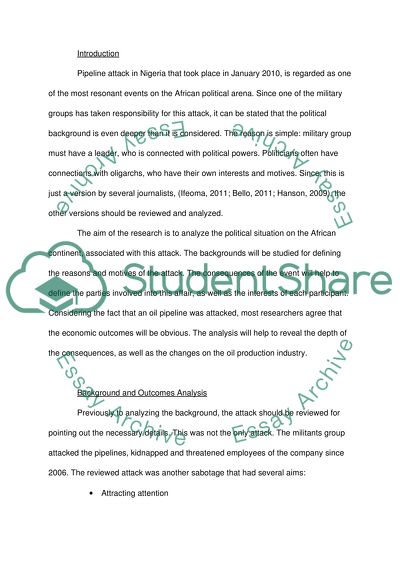Cite this document
(“The political situation on the African continent, associated with Term Paper”, n.d.)
Retrieved from https://studentshare.org/history/1396584-the-political-situation-on-the-african-continent-associated-with-pipeline-attack
Retrieved from https://studentshare.org/history/1396584-the-political-situation-on-the-african-continent-associated-with-pipeline-attack
(The Political Situation on the African Continent, Associated With Term Paper)
https://studentshare.org/history/1396584-the-political-situation-on-the-african-continent-associated-with-pipeline-attack.
https://studentshare.org/history/1396584-the-political-situation-on-the-african-continent-associated-with-pipeline-attack.
“The Political Situation on the African Continent, Associated With Term Paper”, n.d. https://studentshare.org/history/1396584-the-political-situation-on-the-african-continent-associated-with-pipeline-attack.


